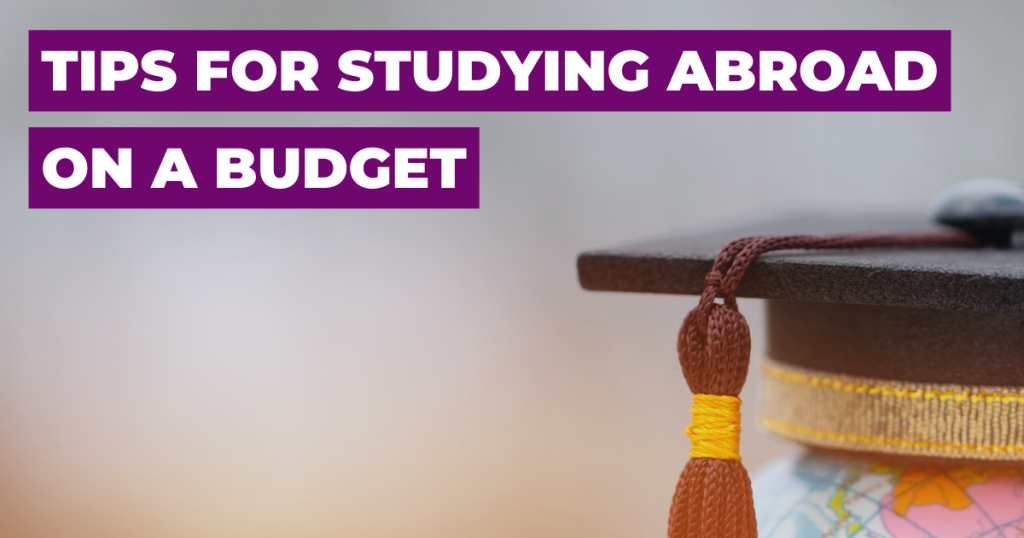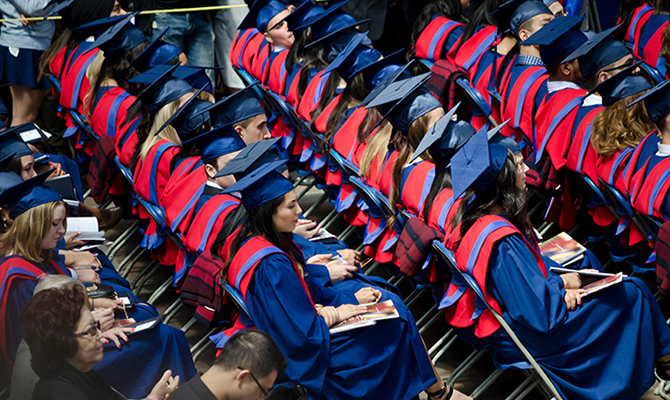February 24th, 2023 by IEFA
If you are planning to study abroad, you may be concerned about the costs associated with studying abroad. Some countries such as the U.S., the U.K., and Australia charge high tuition costs and living expenses.
Your study abroad programs can cost thousands of dollars. You may think this is out of your reach, but there are many ways to save money and plan a budget-friendly study abroad experience.
If you wish to travel abroad and save money, this article will offer some tips on how to make your journey abroad unforgettable – and affordable!

How much does it cost to study abroad?
For students who want to study abroad, the cost can vary depending on many factors. From your preferred course to the country you choose to study in, the cost of studying abroad can vary greatly.
But in general, if we consider the U.S. as an example, the average cost of studying is around US$30,000 per year. This includes tuition fees, living costs, and other miscellaneous expenses.
Costs can be even higher depending on the city you study in, the degree you are pursuing, and the housing you choose.
There is no simple answer to the question, “How much does it cost to study abroad?”. However, understanding the costs of studying abroad and finding smart ways to save money can make your international education journey more affordable.
What are the costs associated with studying abroad?
Depending on the country and region you are in, your expenses can vary significantly. Living costs in a big city like London or New York will be much higher than those of smaller cities with less expensive rental prices and groceries. No matter where you study, during your time abroad there are a few common costs that you can expect including:
Tuition fees

The cost of tuition fees for international students can vary between countries and universities, so make sure to do your research before applying.
In general, it can cost anywhere between US$5,000 – US$50,000 per semester depending on the course you choose.
Food costs
Food is another essential cost when studying abroad. Depending on what you choose to eat and where you shop, the prices can vary considerably.
Eating out may be more expensive than buying groceries and cooking yourself, so it’s important to plan your meals accordingly.
Transportation costs
Transportation costs are also an important factor to consider. Depending on the city you are in, it can be expensive to use public transport or taxis.
Make sure you research local transportation options and consider investing in a monthly pass if available.
Study materials
Besides tuition fees, you will also need to factor in the cost of books and other study materials. The price of these can add up quickly, so make sure you search for the best deals when buying textbooks.
Miscellaneous and emergency costs
You don’t want to get caught off guard while studying abroad, so it’s always a good idea to have emergency funds ready in case of any unexpected expenses.
This can vary from emergency dental visits to medical bills, so make sure you have enough money saved up for these kinds of situations.
How can you make the most out of your study abroad budget?
Now that we know the costs associated with studying abroad, let’s look at some budget-friendly ways to make the most out of your study abroad experience.

Look for scholarships and grants
One of the best ways to balance costs with available funds when studying abroad is to apply for scholarships and grants.
Many universities offer financial aid and other programs to help international students fund their study abroad experiences, so make sure you do your research and take advantage of these opportunities.
Look for cheaper accommodation
On-campus housing is the cheapest option when it comes to accommodation; however, it is sometimes not the most suitable choice.
You can also look for off-campus housing if you are looking for a more affordable and flexible option. You can share a room with your fellow students or look for cheaper apartments in the city.
Eat homemade meals
Eating homemade meals can help you save a lot of money while studying abroad.
Cooking your meals is not only more affordable, but it’s also healthier and allows you to explore different cultures through food.
Dining out even a few times per week can add up greatly over time, so learning how to cook some local dishes is a smart way to save money while living abroad.
Utilize student discounts
Most cities offer discounts for students who are studying abroad. Be sure to take advantage of these offers whenever you can and look out for free events or activities in the city.
These deals can include anything from discounts on new gadgets, cheaper books, discounted transportation, and even free food.
Find a part-time job
Finding a part-time job while studying abroad is a great way to not only make some extra money, but also gain valuable work experience.
There are many ways to earn extra funds, including tutoring, working in cafes or restaurants, or interning for a company. In addition to covering your expenses, this can also lead to new career opportunities.
Most colleges allow their international students to work part-time and have programs in place to help them find jobs. If your visa allows you to work part-time, it’s an option you’ll want to consider.
Create a budget

Budgeting will not only help you with your college journey but also in life.
Create a budget plan and stick to it while you are studying abroad. Track your expenses, set limits on what you can spend, and save money whenever you can.
By having a clear understanding of your financial situation, you will be able to make the most out of your study abroad experience.
Use second-hand items
There is no point in spending hundreds of dollars on new clothes, books, or other items when you can buy second-hand ones for much less.
You can search online for used items or ask your friends if they have any items to sell or donate. This is a great way of saving money while studying abroad and it also helps you create a more sustainable lifestyle.
By following the tips above, you can save a lot of money while studying abroad. With a bit of creativity and planning, you will be able to make the most out of your study abroad experience without breaking the bank. Make sure to do your research and take advantage of all the opportunities available to you. Good luck!
Other Interesting Posts:




